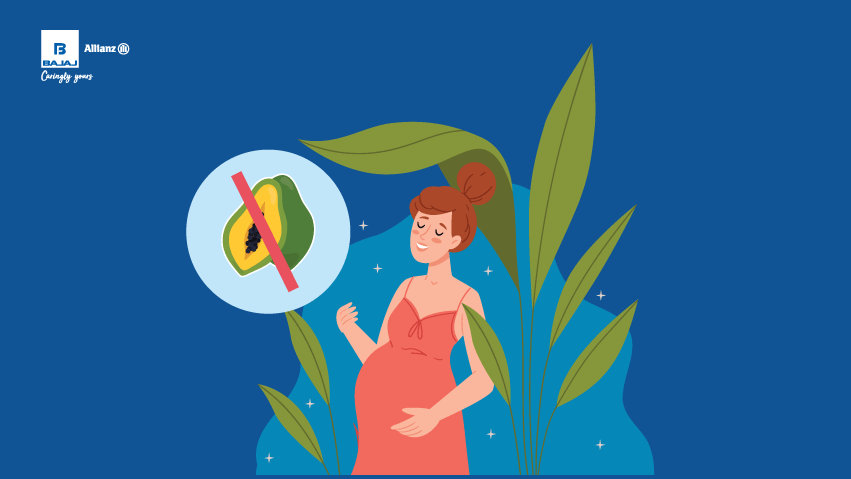Pregnancy is a time filled with excitement and numerous questions, especially regarding diet. Among the fruits that spark debate is papaya. While delicious and nutritious, eating papaya during pregnancy can be risky if not properly understood. So, let’s get into the reasons why papaya is not good for pregnancy and clarify whether papaya causes miscarriage or if there are any papaya benefits in pregnancy.
The Great Papaya Debate
Expectant mothers often ask, can I eat papaya during pregnancy? The answer isn't straightforward and depends on the ripeness of the papaya. While ripe papaya in pregnancy is generally safe, raw papaya during pregnancy poses significant risks.
1. Ripe Papaya: Safe and Nutritious
On the brighter side, ripe papaya during pregnancy can be beneficial. Rich in essential nutrients like vitamins A, B, and C, potassium, and beta-carotene, ripe papaya supports the health of both mother and baby. The confusion around can eating papaya affect pregnancy arises primarily with the unripe version of the fruit.
2. Unripe Papaya and Its Dangers
Unripe papaya in pregnancy can cause major concerns. It contains a high amount of latex, which can lead to papaya side effects in pregnancy. The latex in unripe papaya in pregnancy can trigger marked uterine contractions, potentially leading to early labour, or papaya causes abortion. This is why raw papaya during pregnancy is strongly discouraged.
Does Papaya Cause Miscarriage?
A persistent question is whether papaya causes miscarriage. Unripe or raw papaya in early pregnancy contains latex, which mimics prostaglandin, a hormone used medically to induce labour. Thus, consuming unripe papaya in pregnancy can significantly increase the risk of miscarriage or early labour, especially during the critical first trimester.
Health Benefits of Ripe Papaya
Contrary to the risks associated with unripe papaya, ripe papaya in pregnancy can be a good addition to your diet. It helps with digestion, prevents constipation, boosts immunity, and provides essential nutrients for the baby’s neurological development. However, moderation is key, and it's crucial to ensure the papaya is fully ripe.
Given the mixed messages about papaya and pregnancy, it’s essential to make informed choices. For expectant mothers, distinguishing between ripe and unripe papaya is crucial. While ripe papaya in pregnancy offers benefits, the risks of consuming raw papaya during pregnancy are significant.
The Role of Health Insurance
In the midst of dietary decisions and pregnancy concerns, having comprehensive health insurance plans becomes vital. Bajaj Allianz General Insurance Company offers plans that cover prenatal care, labour, delivery, and postpartum needs. This ensures that both mother and baby receive the best care without financial stress.
Health insurance provides peace of mind and supports mothers through their pregnancy journey. With the right health insurance plans, you can focus on what matters most – your health and your baby’s well-being.
Conclusion
So, can we eat papaya during pregnancy? Yes, but only if it’s ripe and consumed in moderation. Avoiding unripe papaya in pregnancy is crucial to prevent potential risks. Always consult with your healthcare provider about your diet to ensure a safe and healthy pregnancy.
In summary, while papaya for pregnant women can be a nutritious choice when ripe, the unripe version is best avoided. And as you go through these dietary choices, remember that securing comprehensive health coverage with
health insurance plans from Bajaj Allianz General Insurance Company will help you through your pregnancy with confidence and security.
*Standard T&C Apply
**Disclaimer: The content on this page is generic and shared only for informational and explanatory purposes. It is based on several secondary sources on the internet and is subject to changes. Please consult an expert before making any related decisions.
***Insurance is the subject matter of solicitation. For more details on benefits, exclusions, limitations, terms, and conditions, please read the sales brochure/policy wording carefully before concluding a sale.
****The information presented is not meant to be a substitute for medical advice. Any suggestions mentioned should be considered for general use only. For expert guidance on any health ailment or medical issue or any treatment/procedure, please consult a certified medical professional.
 Service Chat: +91 75072 45858
Service Chat: +91 75072 45858


